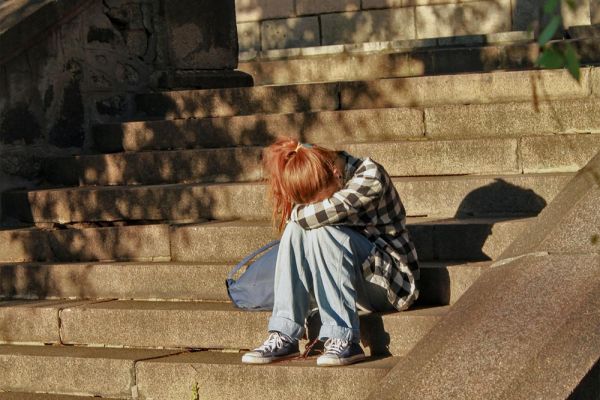 When disaster strikes, it can be devastating. People lose their homes, their pets, their family. Sometimes your life can be in danger. Dealing with that stress can cause trauma, PTSD, and can significantly upset your daily life and routines – putting you and your family at increased risk of additional mental health disorders. Coping with that stress is not easy. But, you can take steps to ensure that you have the best possible tools to cope with natural disaster when it does strike, a mental support network, and emotional support when things go wrong.
When disaster strikes, it can be devastating. People lose their homes, their pets, their family. Sometimes your life can be in danger. Dealing with that stress can cause trauma, PTSD, and can significantly upset your daily life and routines – putting you and your family at increased risk of additional mental health disorders. Coping with that stress is not easy. But, you can take steps to ensure that you have the best possible tools to cope with natural disaster when it does strike, a mental support network, and emotional support when things go wrong.
Natural disasters like flooding, wildfires, hurricanes, and earthquakes affect millions of people each year. Those incidents, from landslide to being forced to evacuate, are stressful, traumatic, and often result in personal loss. Accepting that this is stressful, traumatic, and painful is the first step to ensuring you have a support network in place.
Be Prepared
Being prepared for natural disaster makes it easier to cope with when it does occur. That doesn’t help much if you’re dealing with something now or have just done so. But for the future, if you live in a disaster-prone area, be prepared.
That means:
- Packing essentials for you and your family that you can quickly grab and leave with
- Keeping important documentation in a single folder, within easy reach in case you have to evacuate
- Creating an evacuation process, where family members grab clothing and necessities and quickly leave with a minimum of fuss
It also means knowing when to ask for help. For example, writing down your local emergency hotlines and numbers. And, actually calling them if you’re struggling or are too stressed to cope.
Offer to Help Others
Shifting attention away from yourself and your family during a national disaster can do a lot to relieve stress. Why? It shifts your focus and forces you to achieve some level of calm with which to help others. That can greatly reduce the burden of stress on you, while helping your brain to produce dopamine and serotonin to further relieve stress.
Assisting others can help you to gain a sense of purpose as you move through a challenging environment, which can be remarkably helpful as you do so. Of course, if you have kids or pets to care for as well, adding on additional people can be too much to handle. Be mindful of what you can and cannot take on when doing so.
Take Steps to Cope with the Disaster After the Fact
 Once a natural disaster strikes, you have little to do but to deal with the emotional, physical, and property aftermath. Whatever the damage, you have to deal with it. It is crucial to do so in a healthy way that makes space for the fact that you’ve been through a lot of trauma.
Once a natural disaster strikes, you have little to do but to deal with the emotional, physical, and property aftermath. Whatever the damage, you have to deal with it. It is crucial to do so in a healthy way that makes space for the fact that you’ve been through a lot of trauma.
Talk About It – Discuss what happened with your friends, family, and loved ones. Talk about it as stressful and traumatic thing. This will help you to share your emotions while giving you insight into how others feel about it.
Spend Time with Family and Friends – make sure you spend time with people you care about, in a social environment, where you are getting love, encouragement, and support.
Avoid the News – Avoid spending time watching images and coverage of the disaster. Instead, focus on activities that are positive, which help you to recover, and which are pleasant. For example, unpacking and putting things away. Reading. Watching a film. Going for a walk.
Take Care of What Needs to Be Taken Care Of – If you’ve just lost your home, it can be difficult to relax and read a book. But, you can and should take steps to follow up on responsibilities to make your life better. If your home is damaged, make a list of actionable items you can take and split them up in a way that is empathetic to yourself and trauma and to the fact that having a to-do list is stressful in and of itself. Calling insurance, taking photos of damage, etc., can help you to relax later. And, even if you’ve just been evacuated and have come back to your house, there are things to do. E.g., unpacking and setting your home to rights.
That’s a lot harder if you’ve experienced threat to your life. For example, if your car was caught in a landslide or your subway flooded while you were in it. But, if there are steps you can take, make sure you’re aware of them and that you know what to do next. It’s not healthy to do everything at once, but creating tasks and doing them will help.
Avoid Unhealthy Coping Mechanisms – It’s easy to reach for alcohol or sleeping aids when stressed. But, this will likely exacerbate existing problems and will leave you feeling more stressed and overwhelmed the next day.
Signs You’re Having Trouble
 Everyone reacts to traumatic events in different ways, but some of the most common symptoms include:
Everyone reacts to traumatic events in different ways, but some of the most common symptoms include:
- Mood swings
- Fear and anxiety, especially about the future
- Disbelief
- Shock or feeling disassociated
- Disorientation
- Difficulty making decisions
- Apathy
- Nightmares and recurring thoughts or flashbacks
- Irritability or anger
- Sadness
- Feelings of helplessness
- Not eating enough or eating too much
- Sudden crying or emotional outburst
- Insomnia or sleep difficulties
- Increased reliance on drugs or alcohol
- Physical symptoms such as headaches, stomach upset, diarrhea, and back problems
All of these are indicators that you’ve been through a stressful event. You likely need emotional support. You need to be with your friends and family. And you need to feel safe again. If you can’t’ get that from friends and family, it’s important to look for professional help.
Asking for Help
If you’re feeling stressed and bad, it’s important to talk about it with your loved ones or your therapist. If you’re still experiencing flashbacks, moods wings, and negative emotions more than 6 weeks after the natural disaster, you probably want to contact professional help. Why? These are symptoms of PTSD, where trauma results in lasting mental health problems. PTSD is fully treatable, meaning that reaching out and asking for help will put you on the path to healing and recovery.
Natural disasters are traumatic. We become powerless in the face of nature and our lives, our possessions, and our family are often no longer in our hands. This is stressful, traumatic, and emotionally scarring. Taking steps to get support from your loved ones and professional support is important for coping with that.